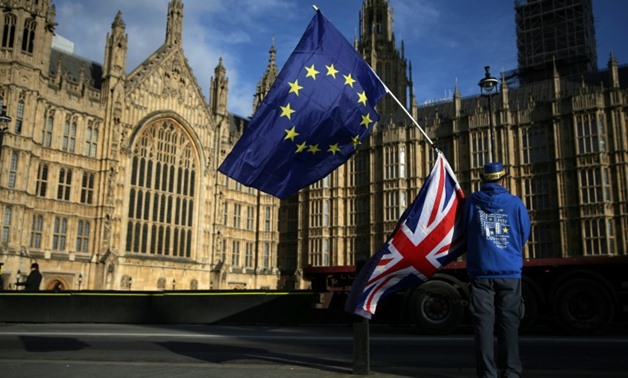
A sizeable minority of Tory members of parliament are pro-EU - AFP
BRITAIN - 6 February 2018: EU chief negotiator Michel Barnier warned Monday that Britain faced "unavoidable" trade barriers after Brexit if it also quit the bloc's single market and customs union as planned, after talks with Prime Minister Theresa May in London.
"Without customs union and outside the single market, barriers to trade in goods and services are unavoidable," he said after the meeting which also included Brexit minister David Davis.
"Time has come to make a choice."
Brexit negotiations resume in Brussels on Tuesday on plans for a two-year transition period for after Britain's withdrawal in March 2019.
But much of the focus in London and Brussels is on the most contentious negotiations due later this year on the future relationship between Britain and the EU.
Senior ministers in May's government will hold two days of talks on Wednesday and Thursday to try to thrash out a plan, as pro-European and pro-Brexit factions in parliament clash over the best approach.
May has repeatedly said that Britain would leave the EU's customs union, a move that would allow it to strike new global trade deals but which critics warn will hit the economy.
"We have said that we want the customs arrangement to be as frictionless as possible and that's what we will be looking to achieve as part of the deep and special partnership we are seeking with the EU," the prime minister's spokesman said after Monday's talks.
"We think we can achieve that because it's in the interests of the UK and the European Union. As with all these matters, it's the beginning of a negotiation."
But Barnier said that "we need clarity" ahead of talks starting in April, adding that he expected an official position from London "in the next few weeks".
Having previously set a deadline for October to ratify any deal before Brexit day, he warned there was "not a moment to lose".
- 'Play by same rules' -
London and Brussels struck a preliminary deal on key separation issues in December, and this week begin technical talks on a transition period to smooth Britain's withdrawal.
Both sides agree that relations during that period should continue largely as they are now, with Britain maintaining trading ties in return for keeping up its budget contributions, but without having any say in making policy.
However, May risked upsetting Brussels last week by questioning the rights of EU citizens who arrive in Britain during that time.
"The conditions are clear, very clear. Everyone has to play by the same rules during this transition," Barnier said on Monday.
- Commanding a majority -
The prime minister has been under increasing pressure from pro-Brexit lawmakers in her Conservative party over her European strategy.
Many eurosceptic MPs were angered when finance minister Philip Hammond, who has warned of the impact of Brexit on jobs and growth, last month suggested the British and EU economies would move only "very modestly, apart".
The Sunday Times newspaper this weekend reported a fresh plot to remove the prime minister if she deviated from her plan to leave the EU's customs union, amid fears Britain is heading for "Brexit in name only".
"She can only command a majority in parliament on her present policy," wrote lawmaker Bernard Jenkin in The Sunday Telegraph newspaper.
But pro-European Conservative MP Anna Soubry said on Monday that the number of MPs who wanted a clean break was "35 tops" out of 650 in the House of Commons.
"PM says she wants 'frictionless' trade with EU. She's right and the only way to achieve that is being in #CustomsUnion," she tweeted.
Interior minister Amber Rudd, who campaigned to stay in the EU during the 2016 referendum, said she and her colleagues meeting this week to discuss the issue were "more united" than many people believed.

Comments
Leave a Comment